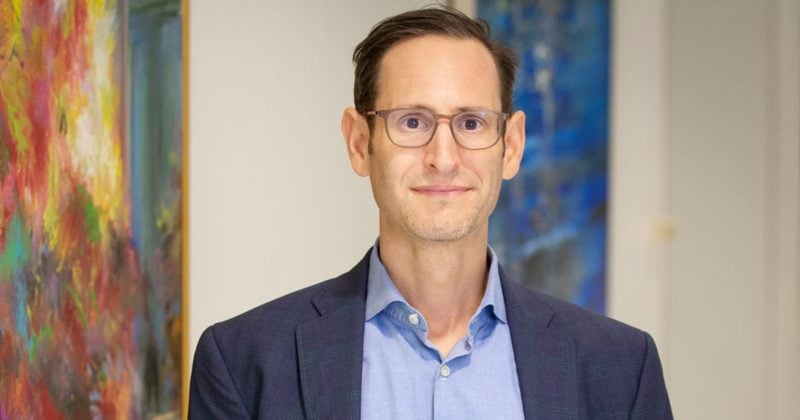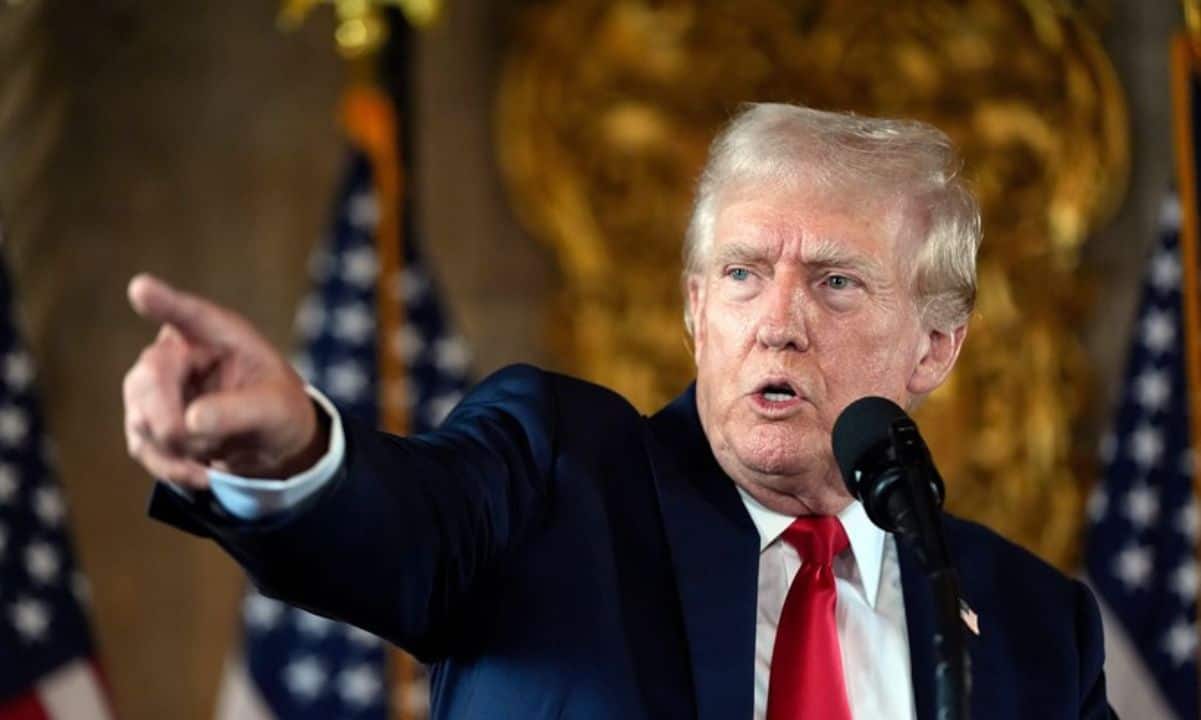Blockchain technology is planting the seeds of change in Africa’s farming sector, providing solutions to long-standing barriers like market access, financial limitations and fair pricing.
For farmers like Sophia Wambui Ngamate from Nakuru County, Kenya, aged 54, it has been a lifeline. “One Million Avocados has wonderfully assisted me in planting more than 120 avocado trees in my shamba,” she says of the Kenyan crypto project that uses orchard tokenization to further an aim to plant a million avocado trees across Africa.
 One Million Avocados staff and farmers on site. (Supplied)
One Million Avocados staff and farmers on site. (Supplied)“They’ve trained me, linked me to other farmers, provided fertilizers, and are even helping us access better markets,” she says.
This revolution in agriculture is more than just digital—it’s tangible. Farmers such as Ngamate are gaining the tools, knowledge, and financial backing to transform their livelihoods.
And by linking rural farmers to global markets and resources, blockchain is unlocking new opportunities, offering a glimmer of hope to small-scale holder farmers in the continent.
Half of Africans rely on farming for their livelihoods
With over 1.4 billion people and an area of 30 million square kilometers (11.5 million square miles), Africa’s heartbeat lies in its agricultural sector. More than half of its population depend on farming for their livelihoods, contributing between 30% and 40% to the GDP of many countries across the continent
However, despite its critical role, Africa’s agricultural sector faces myriad challenges that threaten its sustainability and growth. Farmers, most of them owners of smallholder farms, are perceived as high-risk borrowers and often face barriers to accessing credit.
Also read: We took an ETHSafari to see how crypto is working out in Africa
This leaves them without the necessary capital to boost production, while high transaction costs and intermediaries eat into their profits.
And other players in the agriculture sector — such as input suppliers, cooperatives, government agencies, research institutions, insurance companies and other stakeholders — lack sufficient trustworthy data to assess farmers’ creditworthiness and risk, further hindering African farmers from accessing cheaper loans.
Now, emerging technologies like blockchain, artificial intelligence and the Internet of Things are stepping up to provide innovative solutions that promise to transform African agriculture.
Although the road has been challenging, tech-based agricultural platforms are starting to change how farming is done.
 Real-life yield farming is actually making people happy in Africa. (Supplied)
Real-life yield farming is actually making people happy in Africa. (Supplied)Trading tokenized coffee trees for funds
Paul Gachora is the co-founder of Project Mocha, a Kenyan initiative that helps coffee farmers by tokenizing (digitally representing) coffee trees on the blockchain.
The project was launched in June this year, and it is currently in its pilot stage, with 2,000 trees and a waitlist of 1,500 farmers. Project Mocha allows smallholder farmers to sell tokens representing the economic rights to some of their coffee trees, which gives tokenholders a share of the coffee sales revenue for 10 years. This enables farmers to access funding now for farm rehabilitation, equipment and training.
 Some of the coffee trees tokenized by Project Mocha. (Supplied)
Some of the coffee trees tokenized by Project Mocha. (Supplied)“I have [been a] firsthand witness to my mother’s pain and struggle who has faced persistent financial challenges, particularly the lack of access to affordable capital,” he says.
“Many farmers are asset-rich, owning land and coffee trees, but cash-poor, unable to secure loans or investments for farm rehabilitation. This leads to declining productivity.”
“We turn coffee trees into digital assets that are easy to trade as tokens. This helps farmers mobilize resources for improving their farms and boosting productivity. By using a distributed ledger, we make sure everything is transparent and traceable from the farm to the consumer, so farmers get their fair share of what they produce,” he adds.
“We also track the coffee beans through the value chain, all the way to the consumer, for even more transparency.”
One Million Avocados is tokenizing trees, too
One Million Avocados, which operates in East Africa, operates on a similar model, founder Kevin D. Nyakaru says.
“One Million Avocado tokenizes each avocado tree as an NFT. We create a digital asset that represents a tree’s future yield,” he shares. “Investors thereafter purchase these NFTs. This allows farmers to secure financing, providing them with much-needed capital to invest in their farms.”
Also read: South Africa’s digital-nomad crypto hub: Cape Town, Crypto City Guide
Blockchain ensures that all data related to production, growth stages and yield potential is recorded and accessible, giving all stakeholders confidence in the accuracy and reliability of their investments.
IoT technology plays a vital role, particularly in collecting precise, actionable data on farms that can drive better decision-making.
“By deploying IoT devices, we collect precise, real-time data on farm conditions such as soil moisture, temperature and crop health. This helps us ensure transparency, adhere to local regulations, and make data-driven decisions to improve farm productivity and attract investments,” Nyakaru explains.
The technology has proven useful in the early detection of crop diseases and early remedial measures. “The health of the trees is recorded on a blockchain, giving all stakeholders visibility over the production process,” he says.
“Charles, one of our farmers, had a bacterial infection on some of his trees. Using data, we were able to perform early detection and mitigate.”
Investa Farm banks unbanked farmers
Smallholder farmers constitute 80% of all farms in sub-Saharan Africa and are often left out of the financial system. They can’t get loans from traditional lenders, which depresses farm productivity, and are sometimes exploited for their earnings by intermediaries in the value chain.
 Investa Farm chats to potential clients at a trade show. (Supplied)
Investa Farm chats to potential clients at a trade show. (Supplied)The Kenya- and UK-based Investa Farm helps farmers access financial support by offering crypto loans to smallholder farmers who can’t get loans from traditional banks due to a lack of proper documentation, creating an easier option to secure funding.
By recording farmers’ transactions on the blockchain, they are able to build a credit history even if they don’t have access to regular banking. Over time, they can prove their creditworthiness and get the loans they need to grow their farms.
“By using blockchain, every transaction is recorded and immutable, reducing the risk of fraud and increasing trust among financial institutions,” says Moses Liech, co-founder of Investa Farm. It uses AI to speed up loan approvals and provide the previously unbanked with access to insurance and other financial products.
“By considering non-traditional data points, we provide a more accurate credit score, increasing farmers’ access to loans and financial services,” he says. “Our AI-based credit scoring model takes into account a variety of factors, including farm asset values, rather than just financial transactions.”
“One of our proudest success stories is from a farmer in Kenya who was able to double his crop yield by accessing a loan through Investa Farm. With the loan, he invested in better seeds and irrigation systems, leading to a significant increase in productivity and income,” Liech says.
Speaking their language
As with mainstream adoption, a significant barrier to adoption by African farmers is the overuse of technical jargon. The complexity of blockchain often alienates non-technical stakeholders like farmers. But as Sirungai Allan Kakai, a crypto policy analyst from Kenya, notes, it’s crucial to communicate the technology’s benefits in a language that resonates with non-technical audiences.
“Your DAO is essentially a cooperative, your custodial wallet resembles a neobank, and your tokenized coffee is just another commodity,” he says. “It’s time to ditch the buzzwords and speak a language that resonates with people who might not know (or care) about the tech behind the product.”
Liech from Invest Farm says it can be challenging to get farmers to understand the tech, so Invest Farm uses agricultural stores the farmers already frequent as agents.
“When a farmer like John visits his trusted agricultural store for seeds and fertilizer, the store owner introduces him to our blockchain-based loan service. The store helps John set up a digital wallet, explains how stablecoins work, and guides him through the loan process.”
Accessibility is another challenge, as network limitations and poor connectivity in some rural areas lead to transaction failures. “Project Mocha is designing its platform to work with “mobile networks and basic internet services, which are widely available even in remote areas. This ensures reliable access to the platform despite occasional network limitations,” Gachora explains.
 NFTs are used to represent unique avocado trees. (Supplied)
NFTs are used to represent unique avocado trees. (Supplied)Regulatory uncertainty hampers growth
Regulatory uncertainty is a major barrier to blockchain adoption in agriculture across Africa,” says Kenyan blockchain lawyer Victoria Kariithi of Mwanyumba Kariithi Consulting.
In Kenya, blockchain projects move cautiously due to uncertainty over the rules, while in Nigeria, concerns about sudden regulatory changes have, to some extent, hampered innovation.
“Farmers and AgriTech companies are keen to utilize blockchain for supply chain provenance, transparency and smart contracts, but the absence of simple and clear guidelines poses significant risks,” she says.
“The fragmented regulatory environment across Africa complicates cross-border initiatives/projects, impeding their progress and slowing adoption.”
Gachora says there’s uncertainty in Kenya around the legal status of tokenizing real-world assets, which affects compliance, taxation and user adoption.
“We are actively collaborating with regulators and industry bodies in Kenya to influence policy development and demonstrate the benefits of blockchain for financial inclusion in agriculture,” he says.
“We are also ensuring our offerings comply with existing legal frameworks and international best practices to build a foundation for innovation within the regulatory constraints.”
DeFi disruption is not welcome
Compounding these regulatory challenges is the way blockchain is often presented as a disruptive force. While its potential to upend traditional systems is undeniable, the aggressive “disruption” narrative has, in some cases, hindered constructive dialogue with established institutions. Many in the space have pushed this message with all the subtlety of a sledgehammer.
Kakai says that “aggressively promoting the ‘we’re here to take over’ narrative — especially in public forums like Twitter — has done more harm than good. Banks and other TradFi institutions, who already have established relationships with regulators, will hardly roll out the red carpet if DeFi is positioned as a hostile threat. It’s like showing your poker hand too early: The opposition will adjust and make sure you don’t win.”

But blockchain projects are bearing fruit in Africa
These blockchain-based platforms aren’t just theoretical solutions — they are already starting to make a tangible impact on the ground.
“I am now the proud owner of an avocado NFT representing a real avocado tree growing in Gatundu North, Kiambu County,” Kenyan Senator Karungo wa Thangwa posted on X.
“I am prepared to spearhead crypto and blockchain adoption in Kenya because I believe in the transformative power of these technologies to revolutionize our economy.”
These real-world examples demonstrate how blockchain and AI have the potential to reshape Africa’s agricultural landscape. As these technologies evolve, they hold the promise to unlock unprecedented growth, drive financial inclusion and foster sustainability — paving the way for a more prosperous future for African farmers.
Subscribe
The most engaging reads in blockchain. Delivered once a week.


Ndabari Njenga
Ndabari Njenga is a blockchain and AI writer focused on technology, finance, and sustainable development in Africa. He has written for leading publications on topics like DeFi, digital identity, and asset tokenization, highlighting innovative solutions making a tangible impact in Africa.
Read also
BTC record in sight, ETH rallies, Uniswap disaster: Hodler’s Digest, Nov. 16–21
by Editorial Staff 11 min November 21, 2020
The best (and worst) quotes, adoption and regulation highlights, leading coins, predictions and much more — one week on Cointelegraph in one link!
US SEC investigates Binance’s ICO, metaverse crypto assets up 400% YoY, and STEPN faces DDoS attacks: Hodler’s Digest, June 5-11
by Editorial Staff 6 min June 11, 2022
The best (and worst) quotes, adoption and regulation highlights, leading coins, predictions and much more — one week on Cointelegraph in one link!

 1 week ago
11
1 week ago
11











 English (US) ·
English (US) ·